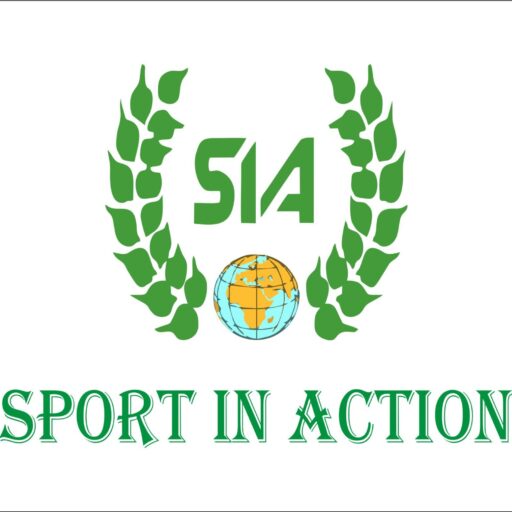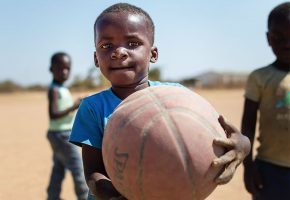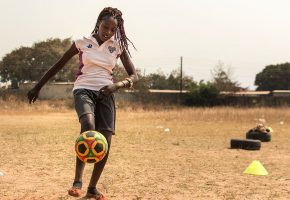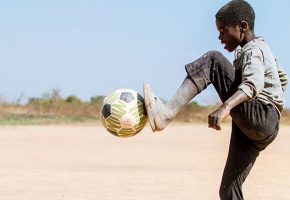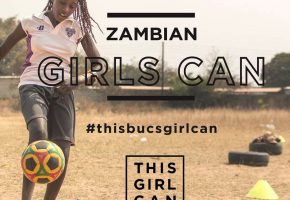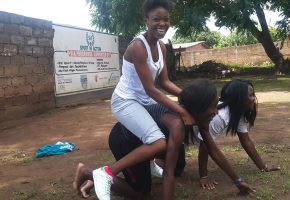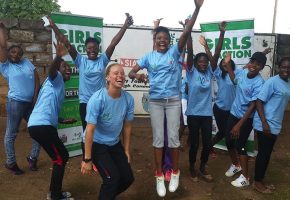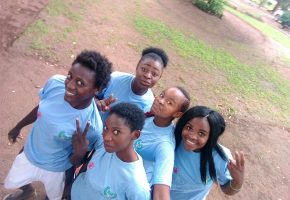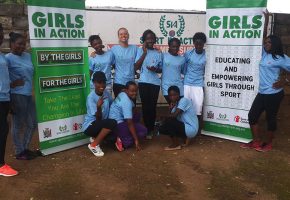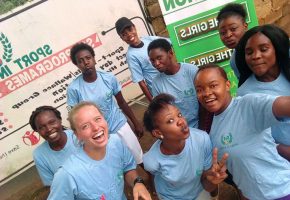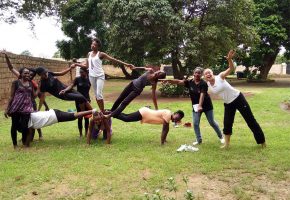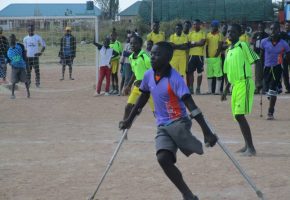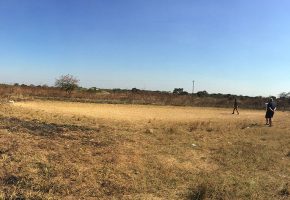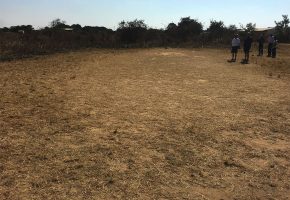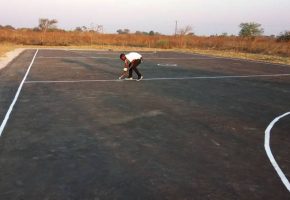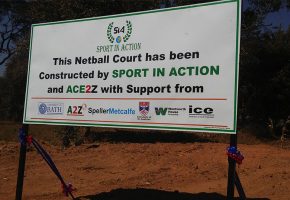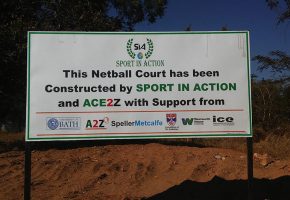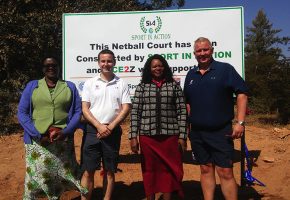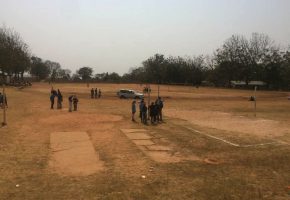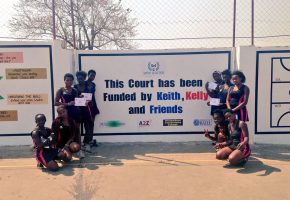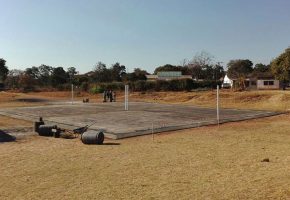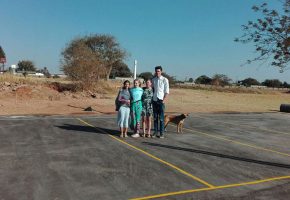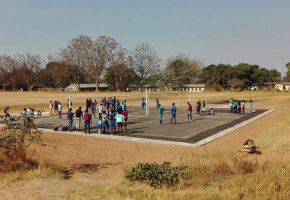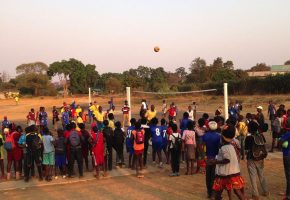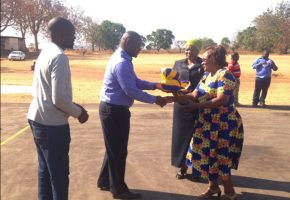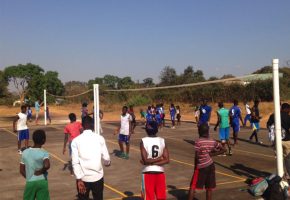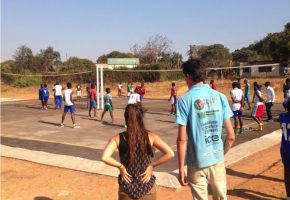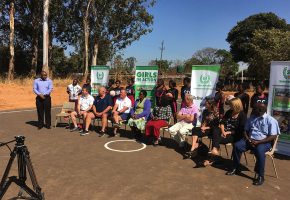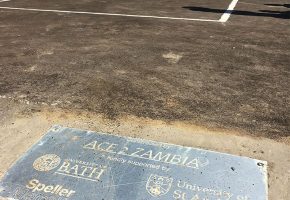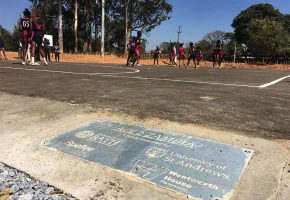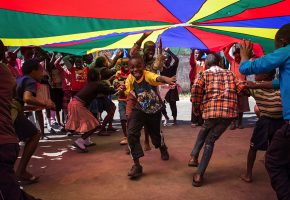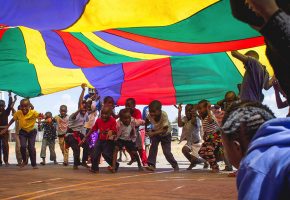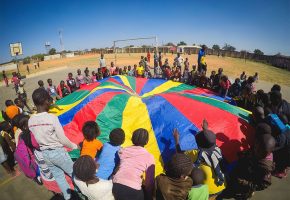One of our core focusses at Sport in Action is the empowerment and development of women and girls.
We strive for an equal society where gender inequality is no more. We are currently partnering with several stakeholders to deliver and see progression for the women and girls within Zambia.
Current projects include our continued sustainable vehicle for change, the hub sites; and a critical gender based violence project in Northern Zambia.
Sport In Action is developing a network of Community Sport Hub Sites across the whole of Zambia in partnership with the National Sports Federations and Sports Associations.
The initiative is being supported by the Wallace Group through the Volunteer Zambia project.
Run in the community, by the community, for the community, the aim is to establish sustainable programmes that widen the impact of sport, but also provide pathways for young Zambians to enrich their lives through participation, leadership and education.
What is a community hub site?
A hub site is a central venue within the community, offering sport specific training and competition. Located, owned and run within the community they serve, the sites are focused on the creation of pathways, the empowerment and development of young individuals within the community (primarily women and girls), and have an underlying focus on sustainability.
Sport in Action believes in year round support and programming, and as such, this would not be possible without community volunteers and their engagement. The more supported, confident and qualified our community leaders are, the better the support they can provide to the community beneficiaries. We work hand in hand with our partners to provide leadership qualifications, sport specific qualifications, formal and informal leadership development, and more. We do this through national structures and pathways, and through in-house mentoring.
Children from varying backgrounds participate in weekly physical education (PE) and sports sessions which are integrated with education on HIV, AIDS, drug and alcohol abuse prevention, gender equity, children rights and other health and life skills. Sport in Action also facilitates peer education workshops, leadership clinics, sex and sexuality health discussion forums. By participating in sport, young people learn the valuable skills of teamwork, commitment and determination, which can then be transferred into any walk of life.
Children identified with potential leadership qualities attend leadership clinics, with a view to building their confidence and skills, equipping them well for their futures. This contributes to greater participation of children in our activities and to creating child-friendly activities. It also helps breakdown misplaced social stigma on the roles and abilities of girls and children with disabilities, thereby enabling these vulnerable children to live fulfilled and joyful lives in their communities. This programme targets children in the age group of 10 to 16 years and has proven to be successful with high participation rates and significantly improved knowledge levels on Comprehensive Sexuality Education (CSE).
Through the CSE activities, young people are equipped with life skills on how to protect themselves from the challenges they may face in childhood and adolescence, whilst parents who take part are taught ways to enable non-judgemental adult to child dialogue. Consequently, these activities are contributing to the reduction of the high rates of premature sexual relations, teen pregnancies, abortions, early/child marriages and gender based violence.
Girls In Action is a girls programme produced by Sport In Action, which uses sport and recreational activities to educate and share information with young females on HIV, AIDS, health and social issues and gender by imparting life skills which empower girls to live an active, healthy lifestyle. Girls In Action (GIA) is implemented in all Sport In Action sites and placements and the target group are girls in the age range of 12 to 20 years. The programme features fun filled activities to make uncomfortable and difficult topics easier to talk about. Activities include: girls forums in and out of school workshops, quizzes, tournaments and leagues, educational tours and exchange visits.
We support adults and children who are living with HIV and AIDS in all programmes by working directly with three support groups comprising of approximately 250 adults and 80 children. Sport in Action organises a weekly sports session for members where they receive the opportunity to participate in recreational activities which social stigma often marginalises them from. We work to break down these social stigmas by organising sports festivals and tournaments that promote social inclusivity of vulnerable people. Teams of people living with HIV and Aids are mobilised from support groups to play and compete alongside teams from the private sector, ministries, embassies, schools, civil society and other individuals, ensuring that all members of society enjoy participation in sport.
Often children with disabilities are ostracised from society. Sport in Action believes that these children deserve the same fulfilment and opportunities as all other children. Consequently, Sport in Action works to breakdown misplaced social beliefs and highlight the abilities of disabled children. By placing them in a safe and encouraging space in order for them to displaying their potential and abilities, Sport in Action hopes that society will begin to realise that they deserve the love and respect given to all other children. We coordinate sports programmes in a number of special needs schools in Zambia. We also provide sports equipment for children with disabilities.
Inadequate provision of sports facilities often encourages children and youth to turn to alternative and negative means of recreation including drug and alcohol abuse. To help combat this problem Sport in Action renovates and creates sports facilities in communities and school sports. On average Sport In Action creates or renovates two sports facilities per year. We believe sport facilities act as the main centre for youth and children in our programming.
Liteta Netball Court
The University of St Andrews has been sending student volunteers and coaches out to rural communities around the Zambian capital, Lusaka, every summer since 2009. The placements take place immediately following the end of the Wallace Group’s Volunteer Zambia 6-week project, enabling students to extend their trip by 10-14 days. One of the regular placement sites is the village of Liteta. In 2017 the University of St Andrews funded the construction of a new netball court situated alongside the Liteta Sport In Action office. The new court will allow local school and community children to play netball and ball sports all year round and enable the Wallace Group to expand and host larger projects and tournaments in Liteta.

Ace2Zambia Construction Projects
Department of Architecture and Civil Engineering, University of Bath
During the summer of 2016, six students from the Department of Architecture and Civil Engineering at the University of Bath were chosen to take part in the design and construction of much needed sporting facilities around the Zambian capital of Lusaka. The Ace2Zambia project came about as an offshoot of the Cultural Exchange Through Sport programme run in partnership with the Wallace Group, and saw a new volleyball court constructed at Munali High School, a multi-purpose court installed at Mtendere Community School and a beach volleyball court added to the facilities at the Olympic Youth Development Centre.
The following summer, a new cohort of students travelled out to Lusaka from Bath to oversee the construction of additional new facilities at Munali High School; a new netball court was installed adjacent to the existing basketball court, the changing rooms that serve the football pitch and athletics track were renovating; and survey and design work were undertaken for the potential re-construction of the football pitch in 2018.

Zambian traditional games have always been educational, recreational and cost-effective but have, over time, been diluted or lost in preference to more standardized games from the West. This is partly due to the misplaced education that “traditional culture is for the uneducated and poor”. Conventional (modern) games are costly, requiring substantial amounts of funds to sustain required equipment and facilities. Most Zambian schools and communities cannot afford these expenses but still prefer to practice such games over the indigenous games which are low cost. Sport in Action works to reintroduce the use of traditional games as a tool through which life skills can be learned. Children are given the opportunity to express their emotions and thoughts through dance, song, drama, role-plays, drawing/painting and storytelling. Therefore Sport In Action plays a part in promoting traditional games through the integration of them in sporting programmes for children.

